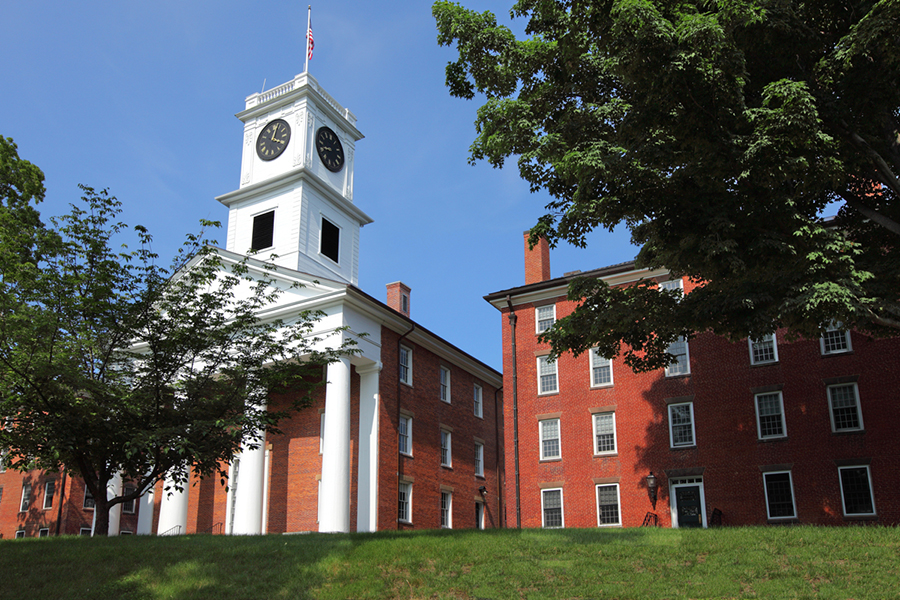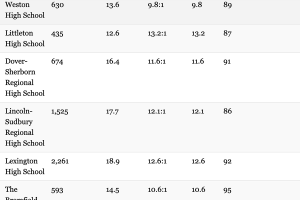The Department of Justice Is Looking into the Admissions Policies of Several New England Colleges
The federal government has asked for information from schools including Wellesley, Amherst, and Tufts for documents regarding early-decision policies.

Amherst College. Photo via iStock.com/DenisTangneyJr
The Department of Justice is yet again poking around the admissions offices of elite New England colleges.
Several top-tier schools—including Amherst College, Middlebury College, Wellesley College, Williams College, and Tufts University—have been asked to comply with a DOJ investigation into early-decision admissions policies, according to the Boston Globe. The probe aims to determine if schools violated antitrust laws by communicating with one another about different applicants.
Schools received letters from the Department of Justice at the end of last week that said the government is looking into “a potential agreement between colleges relating to their early-decision practices,” according to Inside Higher Ed. In accordance with the investigation, the Department of Justice asked the colleges to collect records of communications between schools about early-decision applicants.
The early-decision option has become increasingly popular among college hopefuls looking to gain an edge in the competitive admissions process. By applying by the November 1 early-decision deadline—rather than the regular-decision deadline on January 1—students put themselves in a much smaller applicant pool. Several elite schools pull a hefty percentage of their incoming classes from this group of early applicants, and so the acceptance rate among students who apply early can be vastly higher than among those who apply by the later deadline. Wellesley College, for example, accepted 45 percent of students who applied early-decision for its class of 2020 and just 27 percent of those who applied regular decision.
The five New England schools contacted by the DOJ as part of the investigation all have binding early-decisions policies, so students who are accepted in the first round are locked into attending the college and must rescind any outstanding applications to other schools. Critics of binding early-decision policies say the practice hurts low-income students who are not afforded the chance to compare financial-aid packages if they apply by November 1.
Amherst, Middlebury, Tufts, and Williams confirmed to the Globe that they are complying with the DOJ investigation.

